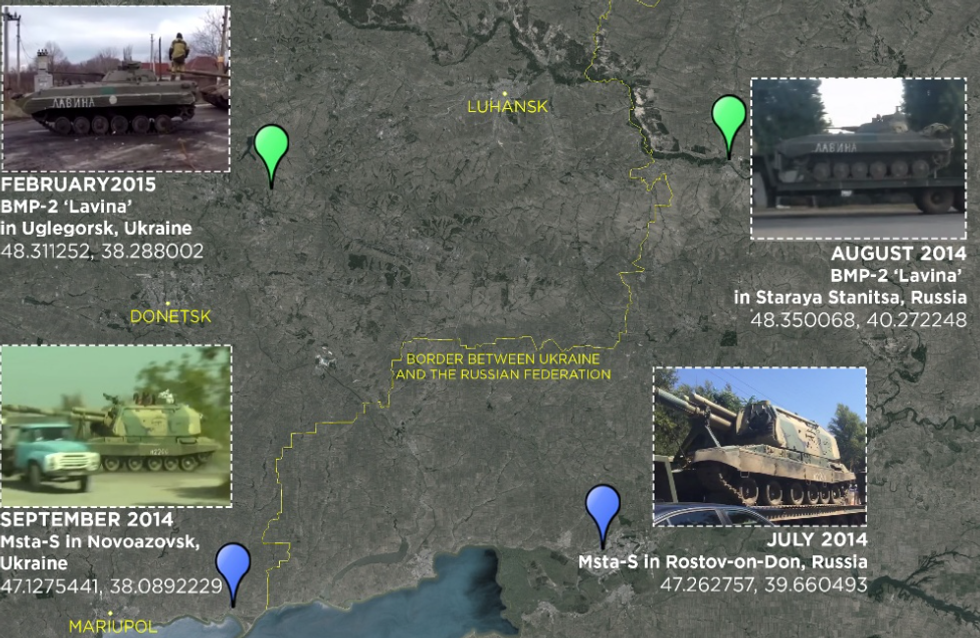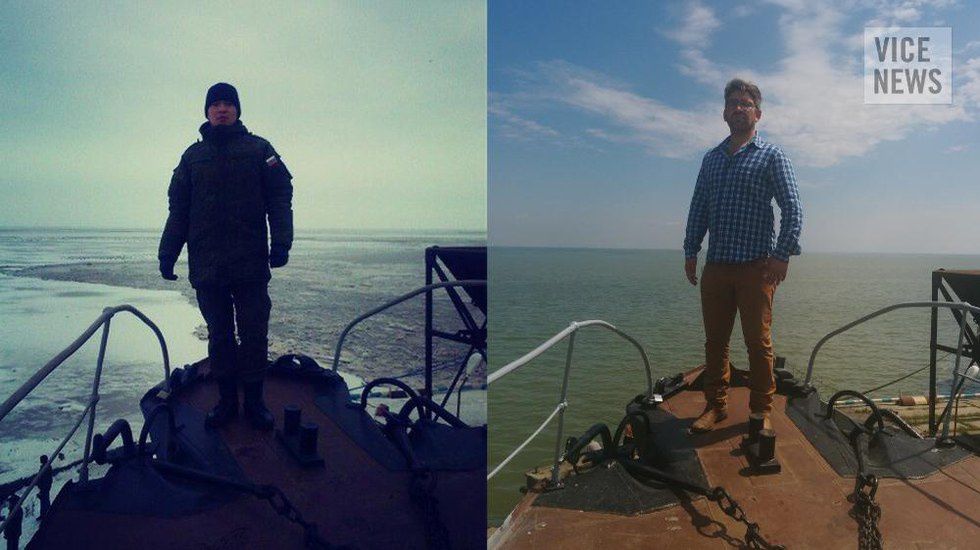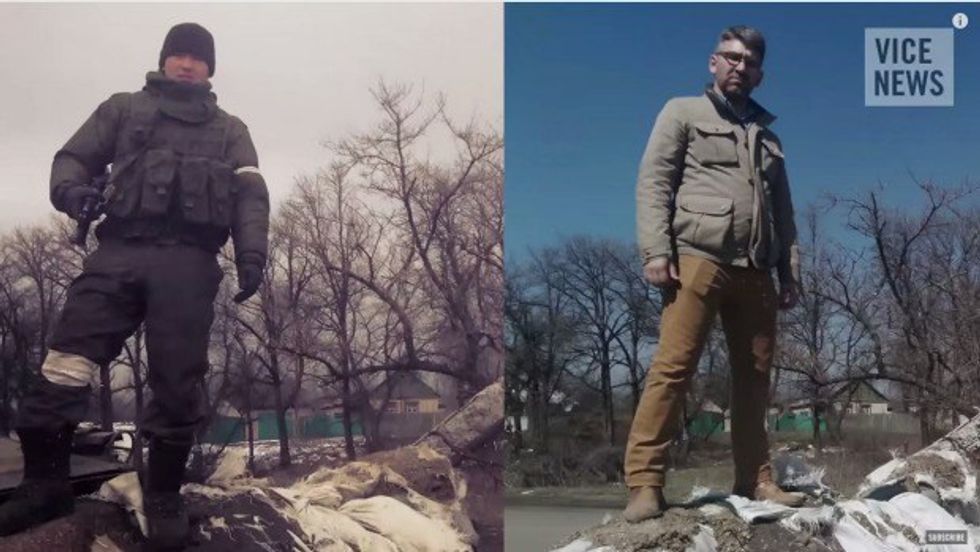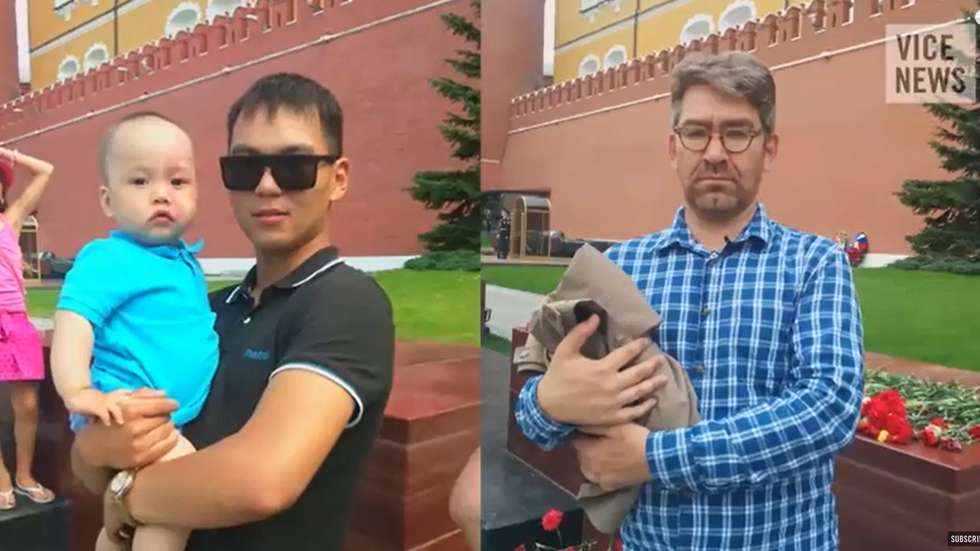In Selfie Soldiers: Russia Checks in to Ukraine, VICE News investigative journalist Simon Ostrovsky sets out to prove definitively that currently-enlisted Russian soldiers are taking a active role in the fighting taking place inside Ukraine. In spite of constant Russian denials, Russia's involvement in the war has been exposed time and time again. What makes Ostrovsky's investigation particularly prescient is not simply that it provides incontrovertible evidence of Russian combat inside Ukraine, rather it is how this information is obtained by Ostrovsky that I find worth noting. While Russian involvement in the Ukraine conflict has been documented in numerous forms by a wide range of entities, Ostrovsky's 20-minute documentary film demonstrates just how dangerous the carelessness of everyday social media can become if one has the slightest motivation to do harm.

Ostrovsky's investigation began after the Atlantic Council, a Washington DC think-tank focused on advancing US-European security interests, published their own 33-page report detailing Russian military involvement in the war in Ukraine. Utilizing open-source information, or non-classified information that is readily available to anyone with internet access, the report's authors analyzed location information and other metadata extrapolated from photographs taken on the ground and from R and personnel located on both sides of the Russia-Ukraine border.
Some of the most convincing evidence of Russian involvement documented in Hiding in Plain Sight come from information obtained through personal photographs taken of and by common Russian soldiers. While the Atlantic Council report mostly uses satellite imagery to document the geolocation coordinates of photographs taken within the borders of Ukraine, Ostrovsky takes things one step further by actually traveling to the exact locations where shots were taken and recreating the images on the ground.

To accomplish his task, Ostrovsky singles out one soldier who was briefly mentioned in the Atlantic Council report, Bato Dambaev, and retraces the soldier's travels throughout Russia and into eastern Ukraine. Ostrovsky travels to several different locations around the region in which Dambaev has posted photographs of himself to his VK social media webpage- essentially the Russian Facebook. The journalist travels to Red Square in Moscow to recreate photos Dambaev took with his family on vacation; to tourist destinations in western Russia to recreate photos Dambaev took with his comrades on leave of duty; to battlefields inside Ukraine to recreate photos Dambaev took at conquered Ukrainian checkpoints; and finally to the soldier's hometown to recreate photos Dambaev took with his son upon his return from war.
After successfully recreating numerous photographs from Dambaev's profile, Ostrovsky decided to see if he could actually reach the man he had been imitating. "We were able to pinpoint the area Dambaev lives in from some of the photographs he posted, then it was just a matter of asking the neighbors," Ostrovsky stated as he walked alongside the worn-down housing structures that line an unpaved road. Moments later, Ostrovsky is inside one of the buildings at Dambaev's door, standing face to face with Bato's obviously flustered wife. Her husband is not home at the moment, but his exact address is confirmed and the vulnerability of his family is exposed.

In the end, Ostrovsky summarizes:
I didn’t manage to meet Bato Dambayev, but I got him on the phone and I talked to his wife so I was able to confirm that he is a real person who has been posting all this stuff online about himself and how he got from here in Siberia all the way to eastern Ukraine. I also found out a lot of other information like who his brothers and sisters are and where he lives. The most important bit of information I got was that he is a contract soldier with the Russian Army up until the year 2016. So this just goes to show how difficult it is for any government, including Russia’s, to try and keep anything secret from pretty much anyone in the modern world.

The documentary is certainly important as yet another example of proof that Russian armed forces are playing an intimate and crucial role in the ongoing conflict inside Ukraine, however I believe it is even more important as an example of just how dangerous casual social media activity can become. The film may be an example of how difficult it can be for governments to keep secrets in the 21st century, but a major reason the Russian government is having trouble keeping it's information secret is the role of social media in preventing individuals from being able to keep their information secret. While Simon Ostrovsky's motivations as an investigative journalist were to simply gather information and present that information to the public, the techniques he used were distressingly simple. One does not have to be a soldier fighting in a secret war to be tracked in the same manner that Bato Dambaev was. Anyone with the slightest motivation- be it through passion, insanity, curiosity- can access the same information in a similar manner to that of Ostrovsky in Selfie Soldiers. What Ostrovsky did to track down Dambaev for journalistic purposes could be done just as easily by much less responsible people with much more nefarious intentions. There's a reason we call it "Facebook Stalking."
Take 20 minutes and watch the documentary for the important information it provides on a major geopolitical crisis, but keep in mind that everything accomplished by Ostrovsky in hunting Bato Dambaev can just as effortlessly be accomplished by your creepy neighbor in hunting you...


















